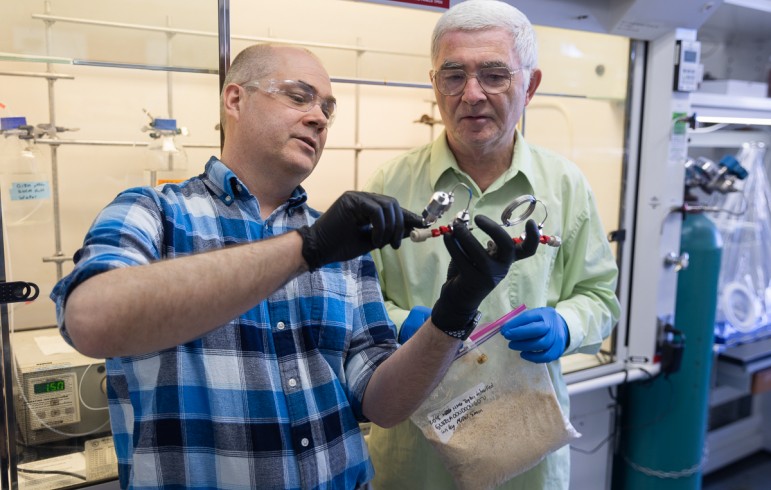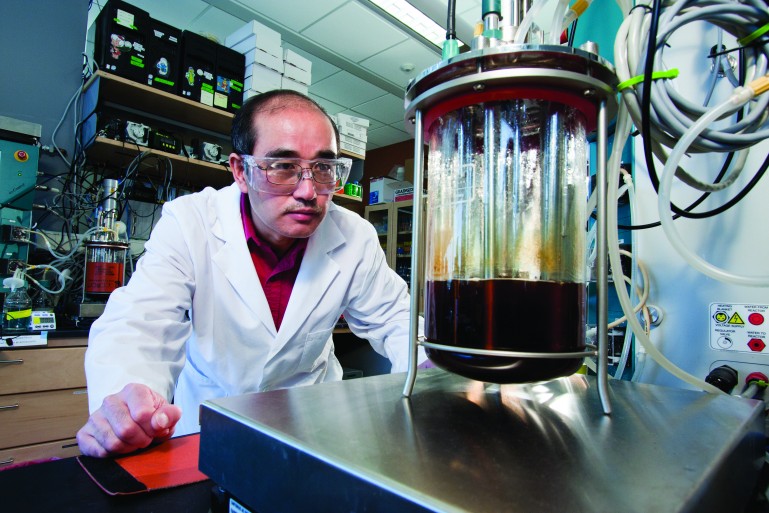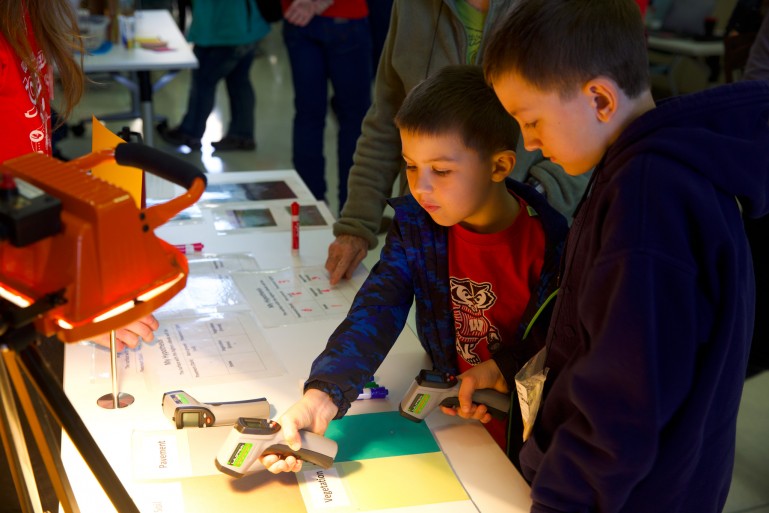This week we spoke with Leta Landucci, an undergraduate researcher in John Ralph's lab at the University of Wisconsin–Madison, to talk about her research into popular tree enzymes, how her research connects with plant engineering, and her experience working with talented scientists.
Chemists at the Great Lakes Bioenergy Research Center (GLBRC) have developed a new approach that converts biomass into both carbohydrates and lignin-derived aromatic monomers in a single step. This approach avoids lignin degradation and mass losses that occur in traditional biomass separation methods and enables better product yields.
A new collaboration with Wisconsin dairy industry stakeholders is developing processes to ferment dairy residues into organic chemicals and other useful products that can serve as a new revenue stream for farmers and support rural communities.
Tim Donohue, professor of bacteriology, has been named director of the Wisconsin Energy Institute. WEI provides leadership in energy and clean technology research, scholarship, education and outreach. The research institute administers collaborative research grants to develop sustainable alternatives to meet society’s ever-growing need for energy and ways to source it.
When she was young, Gesangyangji would stare at the peaks on the mountains surrounding Lhasa, her birthplace in the Tibetan Plateau. They were covered in snow. But as she grew up she noticed the snow disappearing, the white lines chased up the mountain by gray and green rock.
A team from the University of Wisconsin–Madison is one of the top winners in the $5 million XPRIZE for Carbon Removal Student Competition. The contest is kickstarting projects that could mitigate the impacts of climate change by removing carbon dioxide from the air, ground and oceans.
University of Wisconsin–Madison researchers have demonstrated a new process for transforming a plentiful Wisconsin waste into fatty acids, energy-rich molecules that can be used to make fuels and a wide range of important chemicals.



